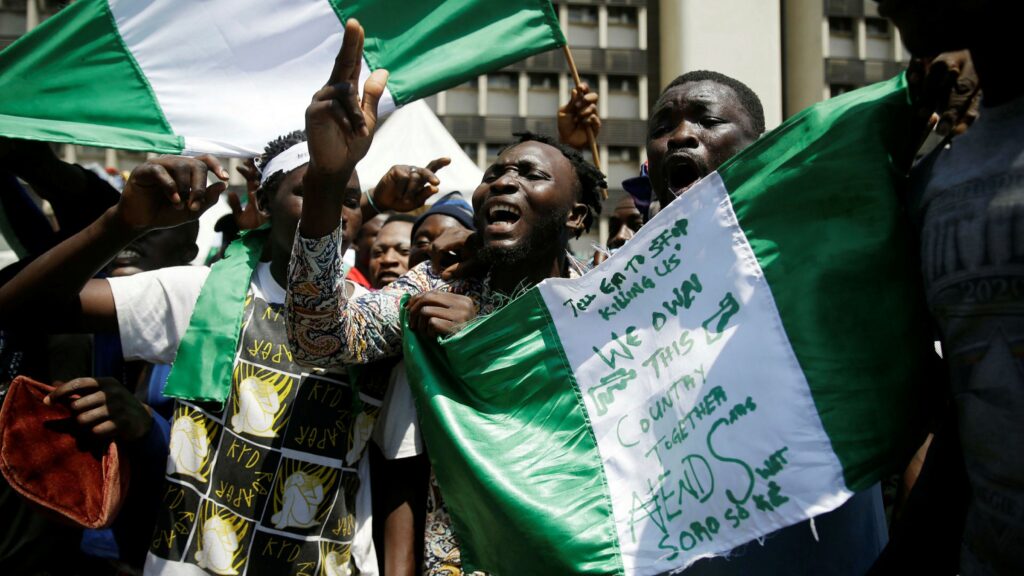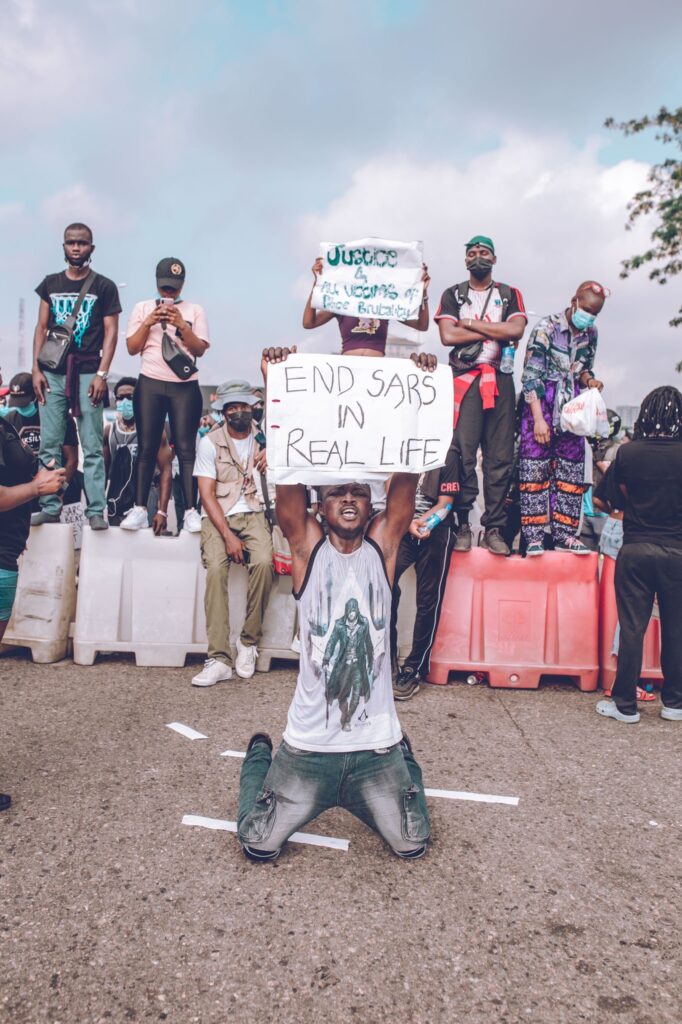
A century after this wave of agitation and ferment has hovered over our resilient heads, it will be remembered that on a certain week, perhaps two, shortly after Nigeria’s 60th less desired birthday, the fledgling of what is to become the great giant eagle settled atop the green and white arc of the nation’s coat of arms took to the streets.
They held up banners and placards in response to what has been quite some four to five years of extortion, unjustifiable whacking, torment and killing of the Nigerian youths.
Late 1992, persons of various classes reported often to police stations for reasons possibly foreseeable to a stagnant economy; larceny of people’s properties had heightened more specifically in South Western Benin of Nigeria, and the now retired Assistant Commissioner of Police in charge of criminal department, CID, Umuahia, Abia State was not having any of it.
As most things with terrible endings are narrated, the decision to create a special unit to combat these unprincipled acts of unruly Nigerians, was largely perceived necessary, but in a country now ranked “The Poverty Capital of the World” and “The Worst Police in the world”, it was not a boastful show of one’s understanding of how nations are run, to have foreseen that the supposed duty officers mandated to protect would eventually become the ones causing the call for a new kind of protection.
Mid-February two years ago, I had read a little book the noble Chinua Achebe had written during the very productive and youthful days of his writing calling. I still wonder about the propelling element to the title, but with each passing day of mishap, I begin to see how much of an observer the great thinker was, the strange glimmers that tried to construct themselves; fresh and raw in his complex mind, the happenings he heard and saw, the conclusions, little of which we knew would be crucial in our quest for answers, a precise, yet piercing truth for the common Nigerian’s understanding and enlightenment.
The book, “The Trouble with Nigeria” begins with the words “The trouble with Nigeria is simply and squarely a failure of leadership. There is nothing basically wrong with the Nigerian Character. There is nothing wrong with the Nigerian land or water or climate or anything else, The Nigerian problem is the unwillingness or inability of its leaders to rise to the responsibility, to the challenge of personal example which are the hallmarks of true leadership.”
There are very few exposing realities to the problems of the man, but literature, peculiarly, carefully curated words sprung by a sorrowful observation to let what borders the mind germinate, ripen and glean, does a great deal in pointing our eyes to what we need see; the point of what our predicaments imply for our subsequent acts.
Some months before Nigeria turned 60, a video surfaced on the net, of SARS officials dragging an already beaten man on the ground, past the gate and subsequently shooting him three times.
A certain Tina Ezekwe was dead, days after a drunk Nigerian Policer Officer misfired after trying to arrest a driver he suspected was in breach of lockdown rules.
The most emotionally provoking was video of the father of the deceased Chibuike Daniel Ikeaguchi in tears, lamenting how his poor little boy, with no criminal history was taken from him.
Chibuike had gone to see a friend at Elenlewo area of Obio Akpor Rivers State, when they saw some men of the Anti- Kidnap Unit and fled believing these men to be the brutal extorting SARS officials. They were pursued, resulting in the shooting of the deceased Chibuike.
In various locations across the world, Nigerian youths have come about the hashtag #EndSars to bring awareness to the social injustice and careless disregard of the basic rights of the Nigerian, and as street protests are held in various parts of the world.
I get the feeling that this could well be an alarming attention that the courage the Nigerian youth has for so long concealed, could call for a new future, a zestful fight against all that has ever been wrong about how a nation ought to be run.
An impactful shift in the peripheries of the true details of life, a cultural adjustment in seeing the freedom of everyone blossom, an end to worthless profiling schemes and a new way of letting the agents of time and wisdom guide the archaic.
In Chapter 4 of the book, Chinua Achebe challenges the “Nigeria Leadership style”, and towards the end, he questions the significance of choosing the words; Unity and Faith as perhaps the strongest Nigerian ideal.
In Unity, he says, is a phenomenon as valuable as the purpose for which it was created; unity to build schools, or hospitals or nations, or rather crude, unity to rob a bank, which then takes on the legal jargon of conspiracy.
In faith, is an ideal only as good as the object on which it reposes; faith in humans, faith in money, faith in talismans.
But theories such as Justice and Honesty or Truth cannot easily be directed to undesirable ends. To Achebe, these virtues cannot be easily amendable to the manipulation and compromise of hypocrites.
The youths protesting on the streets seem rather determined, many have slept on the front gates of police stations, embassies, and most notably, district toll gates. Nigeria is in good chaos.
Late morning into another day of protesting at Alausa, Lagos State, news came suggesting, that a group of hoodlums, heavily armed in axes, cutlasses, machetes and guns had raided peaceful protesters exerting their rights in the city.

These boys, large in number, young and able looking came in through a large sized well known Bus Mass Transit (BRT) bus, stabbing and beating protesters who eventually scampered across the venue and called for aid.
At Ogbomosho, Oyo State, an onlooker at the protest grounds, Jimoh Isaiq was caught in a fire exchange between the police and a few protesters.
Demonstrators in Abuja had cannons of water splashed at them and chemical irritants including tear gases dispelled. The Nigerian Government had made an announcement that the Special Anti Robbery Squad has been dissolved yet occurrences like these only prove how hollow of a response the Government had come by to end a growing revolution let alone considering rumors that the brutal SARS had been disguised as a name more aureate, less rights abusing; SWAT (Special Weapons and Tactics Team).
A century after this wave of agitation and ferment has hovered over our resilient heads, it could be said that on the year Nigeria turned 60, the youths narrated the trajectory they desired the next years would follow; years of un-ending justice and honesty.
By Onyekachi Okorie










Recent Comments